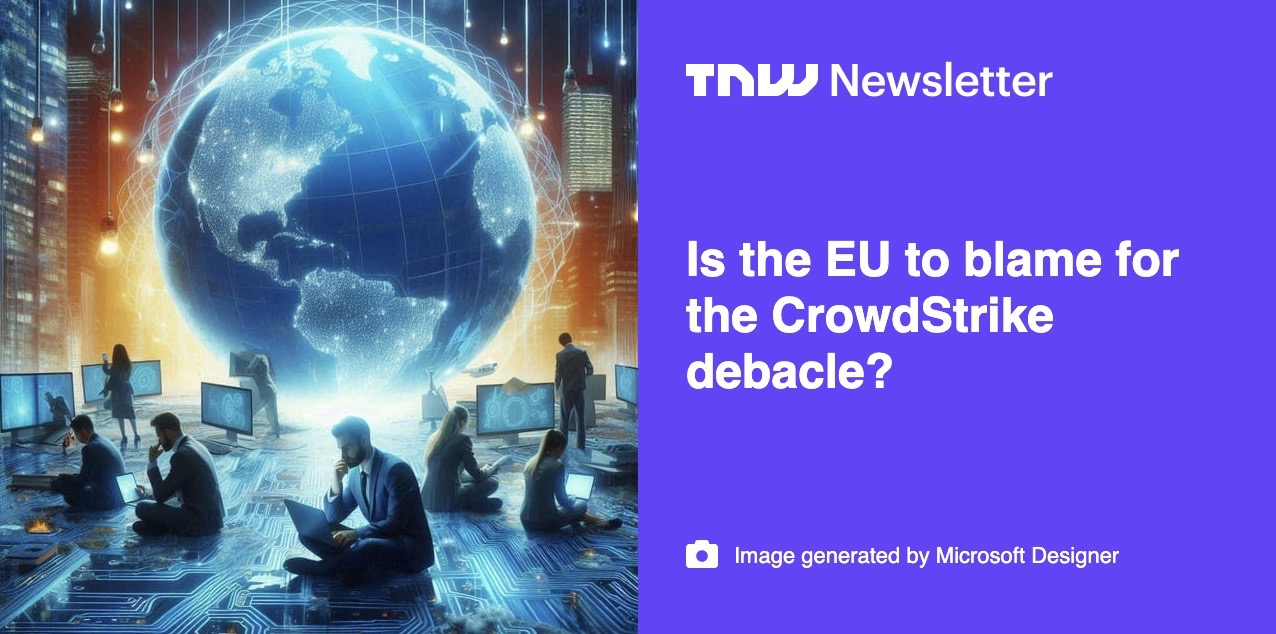Microsoft is (kind of) blaming the EU after the CrowdStrike disaster

[This post if part of our weekly TNW Newsletter — do subscribe if you haven’t yet!]
Last week, it felt like entire countries and industries came to a grinding halt due to an update of the CrowdStrike software package that caused 8.5 million Windows PCs across the world to enter into the infamous Blue Screen of Death. With all kinds of companies having experienced lengthy outages (and many of them are still suffering from issues), the situation doesn’t look good for CrowdStrike or for Microsoft, even though it wasn’t the direct fault of the latter.
CrowdStrike, the Texas-based security software provider targeting big businesses as its main customer base, was quick to admit its mistake and take full responsibility for the catastrophic update. The company’s shares plunged by some 25% on Friday as its clients struggled to apply fixes that required physically accessing every affected PC.
Microsoft, on the other hand, engaged in a low-key blaming game, as it remarked offhandedly that it was the EU’s decision on a complaint from 2009 that kept it from restricting access to Windows’ kernel for third-party apps. Numerous media outlets around the world dutifully ran the story with scathing headlines mocking Brussels’ stance when it comes to regulating Big Tech.
While Europe does tend to pay a lot of attention to antitrust and privacy issues when it comes to technology companies, the critique implied by Microsoft rings hollow.
If anything, the CrowdStrike debacle actually demonstrates the strength of the European approach. What we saw is that thanks to that 15-year-old complaint, thousands of businesses were given the opportunity to choose which security software to run on their 8.5 million computers — and ended up choosing a non-Microsoft solution, which suited them better.
That’s the entire idea behind this kind of regulation, isn’t it?